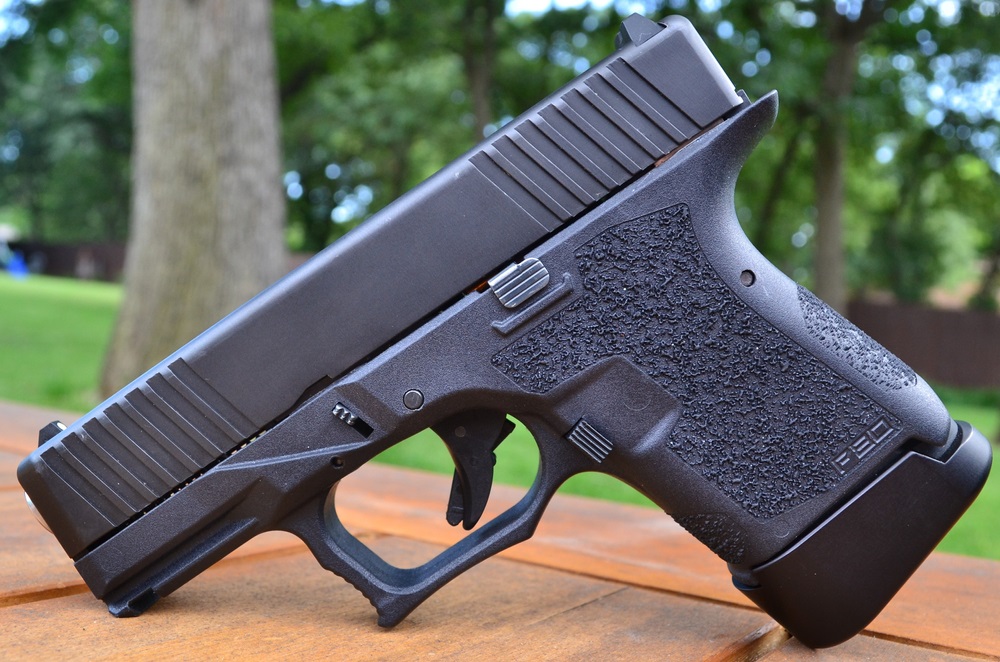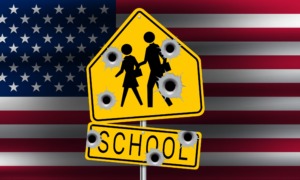
Woemoejack/Shutterstock
Ghost gun in 9mm.
The national debate about gun violence in the United States generally falls into familiar patterns. We express shock and horror at acts of unspeakable violence, grieve for victims and their families and ask questions about the individual who pulled the trigger and what could have been done to intervene with them to prevent the tragedy. But there is one crucial actor who is largely absent from these conversations: the industry responsible for putting guns into our communities in the first place.
For More Information on Youth Gun Violence Prevention, go to
JJIE Resource Hub | Youth Gun Violence Prevention
The gun industry in this country is massive. From 2014 to 2018, nearly 47 million guns were manufactured domestically and another 21 million were imported, totaling 68 million new guns for sale in American communities. In 2018, there were nearly 56,000 gun dealers licensed to sell these guns, spread across every state. And while the publicly available data on gun sales is purposefully opaque, we know that gun sales have spiked dramatically in the last few months as a result of the pandemic, with one estimate finding that almost 3 million more guns were sold from March through June than would have normally been expected.

Chelsea Parsons
In light of the sheer volume of firearms being produced and sold and the inherently dangerous nature of this consumer product, one would expect there to be a robust regulatory framework in place to ensure sufficient oversight of this industry and protect the health and safety of the community. Unfortunately, thanks to a combination of restrictive laws, insufficient resources and lack of political will, the gun industry is effectively unregulated.
The Center for American Progress recently released a report that offers a detailed look at the myriad ways our current laws and policies fail to ensure effective regulatory oversight of the gun industry, touching on nearly every aspect of firearms commerce. To begin, a combination of legal restrictions and insufficient budget mean that the Bureau of Alcohol, Tobacco, Firearms and Explosives — the federal agency responsible for regulating the gun industry — is unable to inspect gun dealers on a regular basis to ensure compliance with the law.
These inspections are crucially important: In fiscal year 2019, 47% of the gun dealers who were inspected were found to have violations, which ranged from failure to properly complete the paperwork necessary for crime gun tracing, to failure to conduct a background check. Compliance inspections are also a crucial tool for uncovering missing and stolen guns, a significant concern considering that more than 5,600 guns were reported stolen from gun dealers in 2019 alone.
Current law and policy also falls short when it comes to determining the type of guns that may be legally sold. While gun manufacturers are required to place serial numbers on all finished firearms and receivers that are sold — and gun dealers are required to conduct background checks before selling them — there is a loophole that allows “unfinished” receivers to be manufactured and sold without these safeguards.
These unfinished receivers allow individuals to make fully functional firearms at home just by drilling a few holes, leading to a proliferation of “ghost guns” in many communities: guns that are purchased without a background check and are virtually untraceable when they are discovered after being used in a crime. Ghost guns have recently gained popularity among white supremacist terrorist groups around the country.
Gun manufacturers and dealers are also largely immune from being held accountable when their dangerous products are used to cause harm in our communities. The Protection of Lawful Commerce in Arms Act, signed into law in 2005, granted sweeping immunity to the gun industry to shield them from lawsuits in federal and state court. While this law includes some narrow exceptions, it has largely served to shut down litigation against gun manufacturers and dealers for harm caused by their products, eliminating one avenue for incentivizing the industry to take steps to prevent such harms and leaving victims without justice.
A crucial component of any comprehensive plan to reduce gun violence in the United States is a focus on implementing robust regulation and oversight of the gun industry. Efforts to reduce gun violence that focus solely on the demand side of the problem ignore the role of the gun industry in manufacturing and distributing the guns that are the instruments of this violence.
Focusing solely on the individuals who use guns to commit acts of violence is not only ineffective, it’s also an approach that has contributed to overcriminalization and targeting of communities of color as part of a “tough on crime” approach to criminal justice. To truly address all aspects of the gun violence epidemic in this country, policymakers must focus on the role the gun industry plays in enabling and exacerbating this violence.
Chelsea Parsons is the vice president of gun violence prevention at American Progress. Her work focuses on advocating for progressive laws and policies relating to gun violence prevention and the criminal justice system at the federal, state and local levels.































